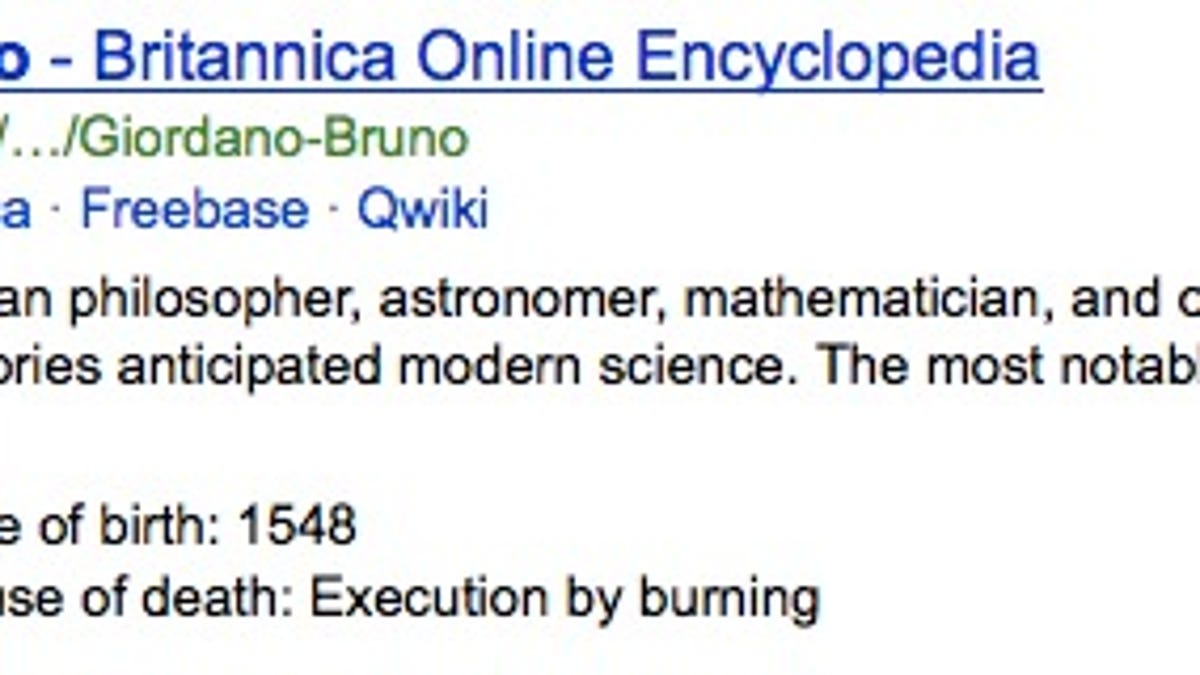Bing plugs Encyclopedia Britannica into its search results
Move over Wikipedia, Encyclopedia Britannica has come to Bing. In a new partnership, the search engine will be linking to query results from one of the world's most trusted encyclopedias.

In the quest for knowledge, Microsoft's Bing announced a partnership with Encyclopedia Britannica today. Now, alongside all other results -- like Wikipedia and Web pages -- users will see a box of information with an image linking to results from Britannica's online encyclopedia.
"A core focus for us here at Bing has been about delivering relevant information in a more organized way to help you find what you need more quickly and get stuff done," Bing's principal development lead Franco Salvetti wrote in a blog post. "We're very excited to collaborate with Encyclopedia Britannica as it continues to strengthen its online presence."
After 244 years of printing volumes of books, Encyclopedia Britannica brought their publishing to a halt in March and became an online and computer-only presence. With this revamp, the company has sought to make its digital packaging even more expansive than its books with multimedia materials, educational tools, and features like full-text searching.
Bing's new encyclopedia feature brings this digital database to users' search queries. How it works is when users type in the name of something or someone they'd like to know about, they'll get a quick overview of the subject, a thumbnail image, useful facts, and links to other "trusted sources."
For example, when "Giordano Bruno" is typed in, users can see in the search results that he was an Italian philosopher, astronomer, and occultist from the 1500s who was executed by burning. From there, the user can opt to click on the link and learn more or move on.
Just last week, Bing launched its new updated design for its search platform in the U.S. The new Bing is a noticeable departure from its old look. Users now find a three-column layout, with the left pane including search results, the center column offering relevant information and services, and the right column hosting social features. It seems that plugging in Encyclopedia Britannica also fits right in line with the search engine's new design.

